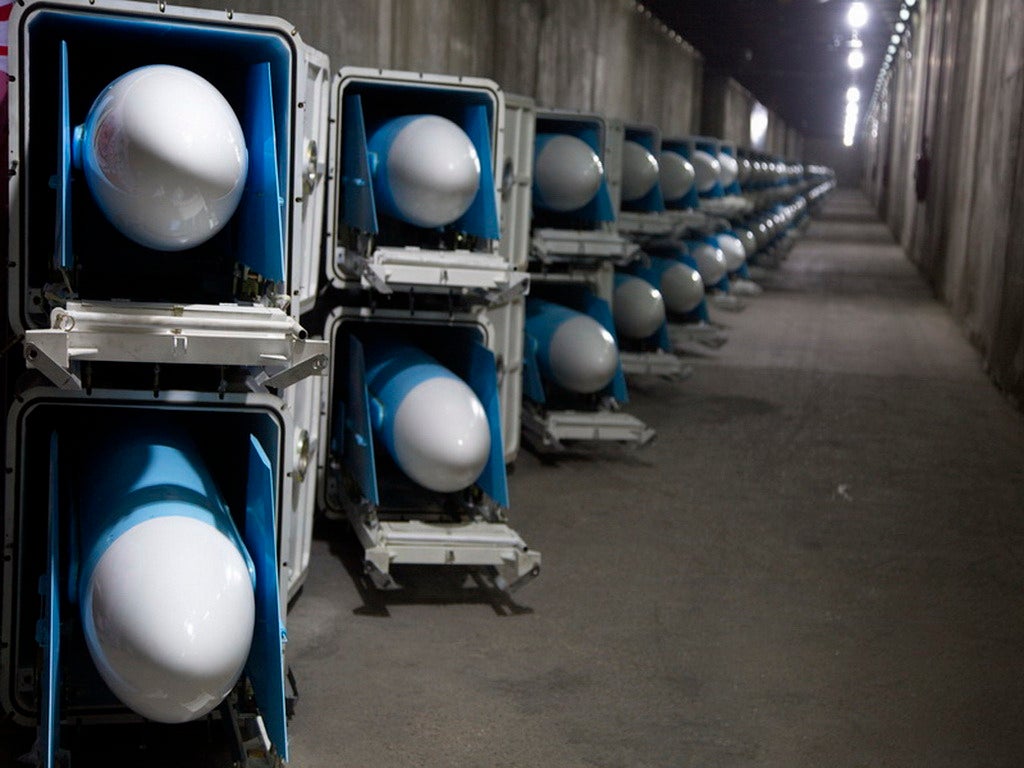State TV: Iran inaugurates new underground missile facility
Iran’s state TV says the country's paramilitary Revolutionary Guard has inaugurated a new underground facility designated for missile storage

Your support helps us to tell the story
From reproductive rights to climate change to Big Tech, The Independent is on the ground when the story is developing. Whether it's investigating the financials of Elon Musk's pro-Trump PAC or producing our latest documentary, 'The A Word', which shines a light on the American women fighting for reproductive rights, we know how important it is to parse out the facts from the messaging.
At such a critical moment in US history, we need reporters on the ground. Your donation allows us to keep sending journalists to speak to both sides of the story.
The Independent is trusted by Americans across the entire political spectrum. And unlike many other quality news outlets, we choose not to lock Americans out of our reporting and analysis with paywalls. We believe quality journalism should be available to everyone, paid for by those who can afford it.
Your support makes all the difference.Iran's paramilitary Revolutionary Guard on Monday inaugurated a new underground facility designated for missile storage, the country's state TV reported.
The report quotes Guard commander Gen. Hossein Salami as saying that cruise and ballistic missiles will empower the force's navy even more. The TV report showed footage of scores of missiles in an enclosed space resembling an underground corridor. It did not say where the facility is located nor how many missiles are stored there.
Since 2011, Iran has boasted of underground facilities across the country as well as along the southern coast near the strategic Strait of Hormuz Iran claims to have missiles that can travel 2,000 kilometers (1,200 miles), placing much of the Middle East including Israel, within range.
The U.S. and its Western allies see Iran’s missile program as a threat, along with the country’s nuclear program — particularly after Tehran gradually breached its commitments to the 2015 nuclear deal with world powers, following the Trump administration's withdrawal from the deal in 2018.
Last July, the Guard launched underground ballistic missiles as part of an exercise involving a mock-up American aircraft carrier in the Strait of Hormuz, highlighting its network of subterranean missile sites.
Since Iran's bloody 1980s war with Iraq, which saw both nations fire missiles on cities, Iran has developed its ballistic missile program as a deterrent, especially as a U.N. arms embargo prevents it from buying high-tech weapons systems. The underground tunnels help protect those weapons, including liquid-fueled missiles that can only be fueled for short periods of time.